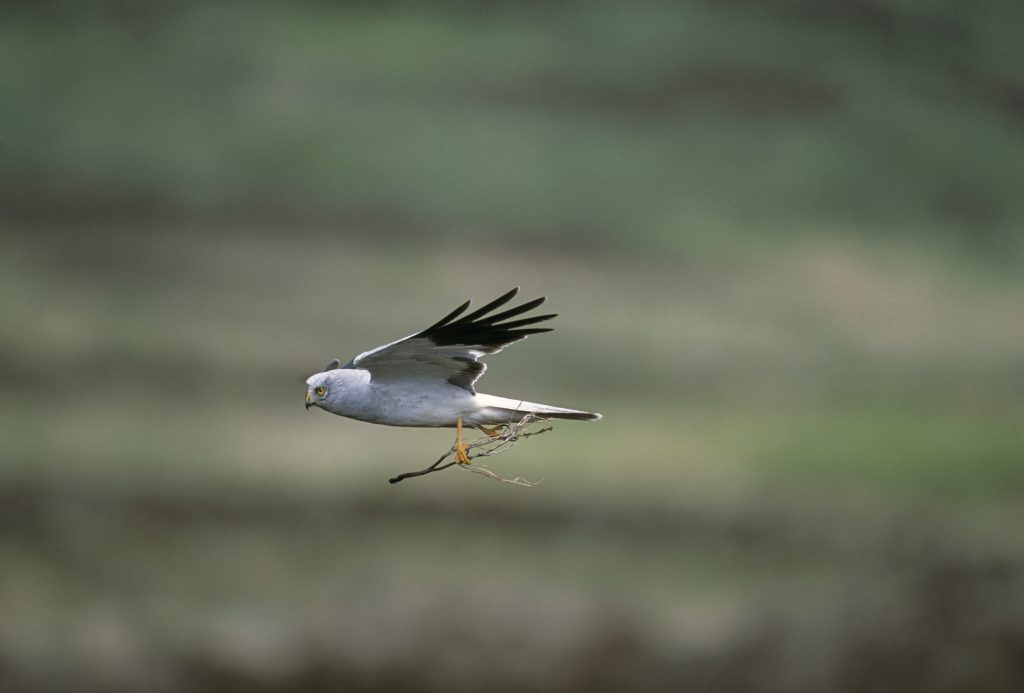Two wildlife conservation charities have partnered up to learn more about one of the UK’s rarest birds of prey, the hen harrier, with the support of a public crowdfunder appeal.
Hen Harrier Action set up the appeal to raise funds to purchase nest cameras and satellite tags which have been placed on three birds. The tagging was undertaken by the RSPB alongside licensed taggers.
One tag was fitted to a male bird named Charlie, who was tagged at the newly created Tarras Valley Nature Reserve in the Scottish Borders. The others were fitted to females named Macha, after the Celtic goddess of war, and Iris, after the Greek goddess of the sky. Macha and Iris were tagged in northern England and northern Scotland respectively.
Dr Cathleen Thomas, Chair of Hen Harrier Action said “I’m incredibly grateful to all the members of the public who donated to our crowdfunder and allowed us to purchase these tags, as well as the raptor workers and taggers who monitored the birds and fitted the tags. I’m really excited to see where our birds go as they make their way out into the world and fledge from their nest sites.”
Known for their acrobatic courtship displays where male birds perform a series of twists and dives, hen harriers are often nicknamed ‘skydancers’. They are predominantly found in heather covered moorlands where they build their nests on the ground and feed on small birds and mammals such as voles.
Hen harriers are among the UK’s most persecuted birds of prey. They were hunted almost to extinction in the late 19th century before their population recovered in the years following the Second World War due to reduced shooting and the introduction of legal protections. However, they are now severely threatened by illegal killing and their numbers have plummeted in recent decades.
The next UK-wide hen harrier population survey is due to take place in 2023, which will shed further light on the current status of the species.
Ian Thomson, Head of Investigations for RSPB Scotland said “Satellite tags are great for telling us about where birds spend their time and what they’re getting up to. With illegal killing the main reason for the substantial decline of hen harriers across Scotland and the rest of the UK, these tags can also help us identify where this is happening. This illegal persecution cannot continue, especially in the current nature and climate emergency, and the licencing of grouse moors will be an important step to help end it for good. Enough is enough.”





